 “A journey of a thousand miles begins with a single step”
“A journey of a thousand miles begins with a single step”
Chinese proverb
Part II of II
It is always advisable to heed to this important Chinese proverb. Sustainable and equitable development is a hard and difficult process that requires togetherness and dedication in serving the common good. This is more so in multinational society such as Ethiopia where there are varied assets and conflicting interests that lead to tensions and instability. Some African nations have shown the way forward; and others lag behind. Ethiopia is among the laggards.
Development is like a Marathon
As I suggested in Part I of this commentary, the wave of independence in Africa was a source of pride for me. The majority of African states became independent in the 1960s and early 1970s. Their leaders vowed to their people that they are “better than their colonizers” and promised to transform their respective economies for the betterment of their peoples. “African Socialism, Ujama (Tanzania), Scientific Socialism and state-led development (Ethiopia), market economy (Ivory Coast) and a combination of these, Structural Adjustment (IMF/World Bank imposed) and anything in between were experimented. The Tigray People’s Liberation Front (TPLF) that dominates Ethiopia’s political, social, economic and even religious life masqueraded as a revolutionary champion of the oppressed; then morphed; and embraced the prescriptions of the IMF and the World Bank as a “market economy.”
The TPLF dominated Ethiopian state and government followed the model of a “developmental state” that showed a remarkable degree of agility in building infrastructure—roads, bridges, dams, stadiums, schools, clinics etc. with little or no attention to the relationships between infrastructure, employment, productivity and social welfare. Ethiopia, it was said, became “one of the fastest growing economies in the world.” Measured against social indicators, including incomes and employment opportunities, the country did not have much to show. The basic needs of the vast majority of the population, for example food supplies, sugar, medical care, sanitation, safe drinking water, shelter and others are still unfulfilled.
Ethiopia is often identified as a “water tower” but nearly 4 million people in Addis Ababa do not have access to safe drinking water. Ethiopia’s irrigable, arable and farmable lands are the envy of North Africa and the Arab world. Yet, it relies on food aid to feed millions. It grants lands to favored domestic and foreign investors to produce food, for example, rice for export. The country relies on imports including foods and other basic necessities to meet domestic demand. Domestic producers are at enormous risk of being wiped out because the regulatory environment does not cater to them. In fact, it favors Foreign Direct Investment (FDI).
The policy and structural hurdles that Ethiopia faces are immense; so are the opportunities for fundamental changes. So, Ethiopia’s Marathon has yet to begin on a solid ground.
I wish to draw to your attention that the majority of African nations begun the Marathon of development at about the same time. Different development models were tried. Fast forward to April 2018, many countries in Africa have, succeeded to mobilize and harness their natural and human resources efficiently and effectively. They have boosted their per capita incomes considerably.
On the basis of 2018 GDP per capita, the top eleven richest countries are:
- Equatorial Guinea $38,700
- Seychelles $28,000
- Mauritius $20,500
- Gabon $19,300
- Botswana $16,900
- Algeria $15,000
- Libya $14,200
- South Africa $13,500
- Egypt $12,100
- Namibia $11,800
- Tunisia $11,700
These countries have basically won their Marathon. They have changed the structure of their economies dramatically and irreversibly. Botswana, Mauritius, South Africa and Namibia have democratic and accountable governments. In contrast, the poorest countries in Africa are also conflict-ridden, corrupt and undemocratic. Burundi, CAR, the DRC, Eritrea, Ethiopia, Niger and Somalia are not only poor; they are also among the most unstable countries on the planet. Ironically, the DRC is endowed with immense natural resource assets.
Contrast Africa’s richest identified above with its poorest on the basis of GDP per capita in 2018; and assess the policy reasons behind them?
- Somalia $128
- Malawi $259
- Burundi $285
- The Central African Republic (CAR) $378
- The Gambia $428
- Niger $441
- Madagascar $449
- The DRC $475
- Ethiopia $568
- Guinea Bissau $585
- Eritrea $590
Decades after nominal independence, the poorest countries in African continue to suffer from the lack of empowering governance and accountable leadership. Therefore, starting the Marathon of development together does not necessarily lead to fundamental policy and structural transformation. You need accountable government and institutions to unlock the sources of wealth creation; and to boost productivity and raise income levels.
Squandered opportunities
Ethiopia is a country whose political elites have squandered numerous opportunities for policy and structural changes. Ethiopia’s social, cultural, historical and spiritual assets, the fabric of the society that I admired during my youth; and the global stature that Ethiopia had established when I wrote my essay decades ago have been largely degraded. Ethiopian youth were forced to abandon Ethiopiawinnet and adopt ethnicity as a guide. Ironically, it this youth that revolted against the current system; and embraced Ethiopian national identity as detrimental.
I am totally convinced that “Revolutionary Democracy and the Developmental State” model won’t help Ethiopian society unleash the productive potential of Ethiopia’s 110 million people.
In my assessment, the TPLF/EPRDF system of government will long be remembered by today’s and future generations of Ethiopians as the one that vaporized the hard fought battle of establishing a modern, prosperous, unified and democratic multiethnic Ethiopia where national identity as an Ethiopian is sacrosanct and honorable; and where indigenous led and home grown development is more predictable and more resilient than “modernization by invitation.”
I never in my wildest dreams projected in my essay that Ethiopia and Ethiopians would be afflicted and endangered by “a state of thieves, plutocrats, kleptocrats, and contrabandists” and other demons in the name of “freeing” the oppressed masses from their oppressors. The “liberators” have become the tugs, the corrupt and the oppressor.
In a debate at the World Bank on the meaning of alleviation of poverty, a Croat said that what Bank professionals have alleviated most noticeably is “their own poverty.” After all, Bank professionals are among the highest paid in the world. The same is true for Ethiopia’s governing elites. They are among the wealthiest in the world; in a country with one of the lowest per capita incomes in the world. They call this “Renaissance.” This is patently unfair and unjust.
“The Challenges My Country Faces in Today’s World” of decades ago have been compounded by hurdles that I never anticipated or predicted at the time. Among these are:
- Ethiopia lost its access to the sea
- Ethiopia’s population exploded.
In 1960, Ethiopia’s population was 22 million. Today, it is estimated at 110 million, 5 times more. Ethiopia is the 13th most populous country in the world.
- In the 1960s and early 1970s, those with education had no trouble finding jobs
It was normal for those of us who studied abroad to return to Ethiopia as soon as we received our terminal degree.
- Leaving Ethiopia in search of opportunities abroad was frowned upon then
- Today, an estimated 80 percent of Ethiopia’s youth are unemployed; half a million college graduates have no jobs
- My national passport was a badge of honor. It identified me as Ethiopian! Now the paper is worth more than the passport; nationality can be snatched away by the TPLF
The TPLF Embassy in Washington used to renew my national passport within a day when I worked for the World Bank. It refused to renew it after I retired; and they never returned my old passport either. The TPLF believes that it can deny Ethiopian identity!! It can’t.
- At the time, Ethiopia as a country and being Ethiopian as a national identity were “nonnegotiable and non-tradable”
- State theft, nepotism, corruption and illicit outflow that would have been unthinkable under previous regimes are now endemic and continue to bleed Ethiopian society
- Close to $40 billion has been siphoned off Ethiopia
The level of state and private theft is so enormous that the country continues to suffer from foreign exchange shortages. This is hardly shocking. No responsible government would allow such bleeding; and no government would allow the black market and contraband trade by high military personnel and others to distort the “market economy” that the system itself created.
- The TPLF degraded Ethiopia’s honor, dignity and sovereignty and converted it into a land of plunder and dependency
- Political officials are guided by self-interest and not by a moral and ethical compass that mitigates excesses and risks
- Ethiopian society is ethnically segregated and polarized in an almost similar manner as that of the old Apartheid South Africa
In short, the principles that landed me a series of scholarships in the U.S.A have been either degraded or diminished. The propagation of “tribalism” and ethnic identity under the TPLF attempted, without success, to rob me and my children of our national identity as Ethiopians. I stuck to my enduring belief that Ethiopia as a country and being identified as an Ethiopian as a nationality would triumph in the long-run. In saying this, I do not underestimate the hateful and divisive entrapments imposed upon us in the form of isms (terrorism), sits (secessionist), fronts TPLF) etc. and their adverse impacts on Ethiopian society.
Have I abandoned hope in Ethiopia and the Ethiopian people? Not at all. My faith in both is unshakable. Nevertheless, the socioeconomic and political challenges my generation faced then remain as intractable as ever. These systemic and structural problems are beyond the capacity of the new Ethiopian Prime Minister alone.
In order to solve them, there must be a radical paradigm shift in thinking. Such a dramatic shift includes, freedom of thinking and doing, public engagement; and a new leadership that is guided by a compelling vision, mission, organization, public service and a genuine commitment to establish a just, inclusive and democratic state and government. More critical, shift requires public confidence and support. At the end of the day, it is not individuals that matter most; it is enduring national institutions that determine the future of any country.
I do not underestimate the powerful vested interests that are entrenched within the current system. They will do everything under the sun to undermine individuals and groups that champion fundamental changes. The current effort to sow seeds of division within ANDM is a prime example. The old guard within the TPLF and its cohort of loyalists are determined to replace anyone and everyone who is committed to even a semblance of reform that will change the balance of political and economic power in Ethiopia.
In my assessment, the policy and structural hurdles Ethiopia and the Ethiopian people face can be resolved through fundamental change. I posit without hesitation that such fundamental change will be resisted by the TPLF and its agents and agencies at all cost. But, change is not only possible; it is highly probable.
In this regard, I do not dismiss reforms as stepping stones for fundamental change. For example, releasing all political prisoners, changing the Election Board, decoupling the security, surveillance and defense institutions from TPLF or other party control etc. and making these institutions independent and national.
No one will be safe unless and until these institutions are freed from TPLF hegemony.
This is why I believe that the popular peaceful resistance against the current system should continue with greater wisdom and restraint. Having said this, I do not underestimate reform as a bridge to fundamental change.
The new Prime Minister, Dr. Abiy Ahmed offers leadership qualities that are fairly rare in Ethiopia’s recent political history. The positive language he uses; the narrative of an Ethiopian future he presents; and the physical image he projects are all energizing and empowering. This is a welcome contrast for an Ethiopian society that has lived under a cloud for almost three decades.
It is therefore understandable if there is a sense of euphoria in the country. This euphoria reflects an appetite for change. Ultimately, fundamental change comes from an overhauling of a burdensome system; and not from a single person.
Prime Minister Dr. Abiy has human compassion and shows empathy. He believes in the peaceful resolution of conflicts. He connects with citizens. He is making a huge effort to change the narrative and the story line, making Ethiopia as a country and being Ethiopian as a national identity central to the discourse. Narratives do matter. Story telling does matter. The language leaders and we use matter. This is not small. I would single out his tour to different parts of Ethiopia and his direct public engagement with a diverse set of the public as a “new beginning.” These forums offer the Prime Minister with a window of opportunity not only to hear public grievances; but also to learn afresh the root causes of the popular uproar, especially since November, 2015.
This in itself is not a sufficient condition in dealing with the root causes of the Ethiopian crisis. But, public engagement is critical in order to underpin the problems and to frame the way forward. Ultimately, Ethiopia’s myriad of policy and structural problems cannot be resolved without public engagement, especially women and youth.
Dr. Abiy has strong ethical, humane and social values. He seems genuine and this quality will make his outreach effective and results-oriented. At the same time, our expectations should be much more measured and realistic. Our tendency to pile praise on leaders before they tackle the huge systemic problems they face does not help them. Nor does it help the society.
Dr. Abiy’s program focus on Ethiopia’s youth and women and the agricultural sector, including irrigation farming is not only important; but also detrimental. It is Ethiopia’s youth who sacrificed their lives and created a favorable environment for new, energetic and bold leadership to emerge. The Ethiopian people deserve food self-sufficiency and security. They also need freedom. He recognizes that government alone cannot solve the country’s problems. This is an encouraging news for the Ethiopian private sector that has been suffocated by TPLF owned, endowed and affiliated conglomerates.
Dr. Abiy’s attention and focus on bribery, nepotism, favoritism and corruption is laudable. In disclosing members of his cabinet, he put a red line on two worst administrative mismanagement practices that have been normalized by the TPLF. He said that each cabinet member is expected to observe the red line threshold in the prohibition of services on the basis of “who you know and what language you speak; and on the basis of bribery and corruption.”
I also pay tribute to Prime Minister Dr. Abiy Ahmed for making a herculean effort to center Ethiopia’s 110 million people on Ethiopia as one country and Ethiopian as our defining national identity. His projection that “peace, democracy and development” are intertwined is conceptually correct. However, these guiding principles cannot be put to fruition under the TPLF-dominated and commandeered “Revolutionary Democracy and the Developmental State.” Both concepts are outdated leftist rhetoric.
This leads me to pose a question for which I do not have an answer. How does the new PM Minister break the TPLF grip on national institutions such as security, the surveillance system and defense?
Risks in public forums
I do not wish to dampen my hopeful commentary with a critic. However, I want to be candid about specific areas where “political correctness” may have prevailed over sober and frank assessment of crisis points. I was, for instance, dismayed by his assertion in Mekele, that “Tigreans are the motor” that runs the Ethiopian economy. This assertion is not supported by the economic and natural resources facts on the ground.
TPLF preponderance over politics and economics has left millions destitute. While I appreciate the nuances in political speak in a public forum, it would have been more appropriate to pay tribute to the people of Tigray and urge them to join the rest of Ethiopia in the struggle for justice, the rule of law and democracy. TPLF and agency plunder and development do not go hand in hand. Theft, graft, corruption and illicit outflow do not go hand in hand with a fair distribution of incomes and wealth. How does one justify massive income and wealth vested and concentrated in EFFORT that is not even shared with the people of Tigray? The TPLF has failed to serve the people of Tigray.
The Wolkait case is not just development.
Although the Prime Minister has changed the narrative since Mekele, I was also dismayed by Dr. Abiy’s description of the “Wolkait” situation in which tens of thousands of Ethiopians have been killed, maimed, tortured and displaced from their lands. “Wolkait” cannot be dismissed as a growth and development issue. Denying the people of Wolkait their legitimate identity as part and parcel of the Amhara population; and Wolkait as part of the Gondar sub-region of the Amhara region; and grabbing their lands is not a development issue. It is a human and economic rights issue. The case of Wolkait must be heard and resolved and not shunned.
I do not support the TPLF contention that a referendum should be entertained. You don’t snatch lands; depopulate the people; populate lands with Tigray nationals and then propose a referendum to confirm your position. This position must be rejected by all Ethiopians. The TPLF position of compensating the lack of fertile lands by grabbing the lands that belong to the Amhara or other people and by expanding the Tigray region is a non-starter. It will destabilize the entire region and Ethiopia for generations to come. The Prime Minister has a responsibility to deal with the issue on its own merit. The Ethiopian Diaspora’s involvement is peripheral and not central to the Wolkait issue.
The Prime Minister is fully cognizant that, for the people of Gondar, the vast majority of whom are Amhara, the territories of Wolkait-Tegede, Telemt, Setit-Humera, Raya-Azebo and numerous other lands other lands annexed by the TPLF and incorporated into Greater Tigray are part and parcel of the Gondar and Wollo sub-region of the Amhara region. It is a historical fact that the TPLF has no legitimate or historical claim of lands beyond the Tekezie River.
The people of Wolkait have paid dearly with their lives in asserting their rights and their identity as part and parcel of Gondar and not Tigray. Their noble cause cannot therefore be whisked away or explained through the rubric of the catch-all development tool. Development is a separate and national issue.
Wolkait and other annexed lands exemplify the forcible annexation and incorporation into Greater Tigray of lands that belong to the people of Wolkait/Gondar and the Amhara region. The TPLF forcibly annexed lands from Gondar, Wollo, Gojjam and other locations of the Amhara and other regions; and redrew regional boundaries to the detriment of indigenous people. Spiritual leaders who serve the sacred monastery at Waldiba were humiliated and jailed for the simple reason that they rejected TPLF claim of lands that belong to Waldiba. The plan is to produce sugar for the TPLF; and ultimately to integrate the land to Greater Tigray.
Accordingly, Wolkait, Raya and other annexed lands are a major source of current and future conflicts. It would have sufficed for Prime Minister Dr. Abiy to say that “the Wolkait issue” is vital for Ethiopia and should be given serious and due consideration by the new government under his leadership.
The above two examples detract from the bigger national messages that I find encouraging. For this reason, the adulation that followed his appointment has come under scrutiny from several quarters for policy and not for personal reasons. This is to be expected. And he needs to deal with it boldly and in a forthcoming manner.
I appreciate the notion that no single individual should be expected to answer all of the policy and strategic questions that have been simmering for 27 years. The question going forward is whether or not Ethiopians would have the opportunity to debate policy without fear of going to jail; and to offer alternatives without being shot or maimed or tortured or jailed etc. by the TPLF that still holds overwhelming institutional and financial power.
The denial of an exit visa at the Airport to the renowned journalist Eskinder Nega is ominous in that, even the most basic right to travel out of Ethiopia is a source of great concern for the TPLF.
The TPLF and its cohorts will never get it because they have a huge vested interest in maintaining the status quo and in hiding the truth. The “motor” the TPLF wields in Ethiopia is not the healthy transformation of Ethiopian society. Rather, it is its preponderance to amass wealth and property throughout Ethiopia as a consequence of its political and security preeminence. This incontestable political and economic capture by the TPLF and its agents and agencies is the hugest and most intractable problem the new Prime Minister faces.
Accordingly, although Prime Minister Abiy’s leadership and personal qualities are admirable, he faces enormous challenges that require public support on the one hand; and continuous popular push on the other.
Popular push is imperative in order to overhaul the TPLF grip completely; and in order for Ethiopia to finish the Marathon of development or at least to sprint as hard as Ethiopians can. Public push and support will go a long way in strengthening the transformative leadership of the Prime Minister.
Much has been said about priorities, for instance the rescinding of the state of emergency, release of all political prisoners etc. These are legitimate demands. Public pressure should therefore continue with an end game in mind.
The 2020 parliamentary elections are just two years away. For a free and fair election to take place, numerous preconditions must be made and the political environment must be opened.
A transitional government of national unity that would pave the way for free and fair elections is critical. This is resisted by the TPLF and some members of the rest of the EPRDF.
The TPLF will prove to be the single most important barrier to fundamental change. Peace is vital; but peace cannot be wished for! Peace must respond to the hopes, aspirations and fundamental rights of millions of ordinary Ethiopians.
Ordinary Ethiopians, especially youth want substantial; and not cosmetic changes. Repeating the same modest reforms and gimmicks tested and tried by the TPLF dominated EPRDF and thrown at the Ethiopian public like gifts over the past 27 years will no longer work.
As I argued in a previous commentary on farcical ‘Revolutionary Democracy” and the “Developmental State,” Ethiopian society deserves fundamental changes in governance.
Fundamental change, including an all-inclusive transitional government of national unity that will enable free and fair elections won’t be easy. However, in the medium and long term, it is the only way out of the morass. For this to happen, peaceful, continuous and popular struggle is a must. And incremental change that will lead to fundamental change should not be dismissed at all.
Allowing any ex-political prisoner to travel out of the country will go a long way in showing the world that Ethiopia is indeed in the process of change.
Ethiopia needs to push forward in a Marathon-like journey in order to retake its honorable place among the family of modern nations. 4/20/2018


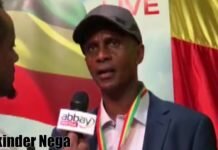
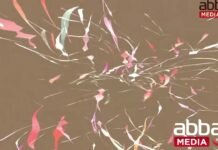




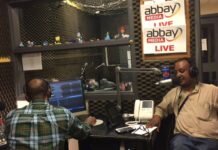
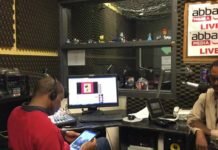




![Containing new forms of insecurity [The Morning Call] Containing-new-forms-of-insecurity-The-Morning-Call](/wp-content/uploads/2018/04/Containing-new-forms-of-insecurity-The-Morning-Call-218x150.jpg.pagespeed.ce.jMMYyynUZ4.jpg)




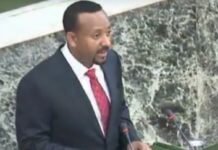














![Containing new forms of insecurity [The Morning Call] Containing-new-forms-of-insecurity-The-Morning-Call](/wp-content/uploads/2018/04/Containing-new-forms-of-insecurity-The-Morning-Call-100x70.jpg.pagespeed.ce.eieiLSNvde.jpg)







